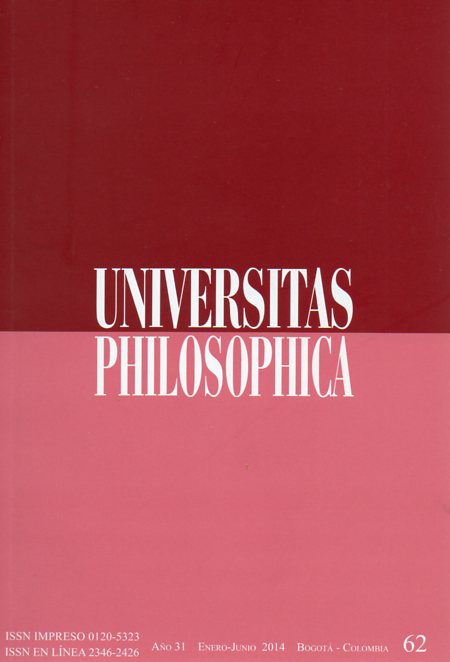Abstract
In the last years of her short life, Simone Weil wrote the essay: The Iliad or the poem of force, a beautiful and lucid song to the greek virtue made clear during the Trojan War. From this reading, and through the exploration of her work, this article aims to elucidate the role of force as a key to understand the social phenomenon and the relations among human beings. Furthermore, it pretends to grasp the meaning and value of pain and suffering as constituent elements of the human, which according to this philosopher, whose life was absolutely coherent with her thinking and sensitivity, is the purer approach to the pureness of the divine.
This journal is registered under a Creative Commons Attribution 4.0 International Public License. Thus, this work may be reproduced, distributed, and publicly shared in digital format, as long as the names of the authors and Pontificia Universidad Javeriana are acknowledged. Others are allowed to quote, adapt, transform, auto-archive, republish, and create based on this material, for any purpose (even commercial ones), provided the authorship is duly acknowledged, a link to the original work is provided, and it is specified if changes have been made. Pontificia Universidad Javeriana does not hold the rights of published works and the authors are solely responsible for the contents of their works; they keep the moral, intellectual, privacy, and publicity rights.
Approving the intervention of the work (review, copy-editing, translation, layout) and the following outreach, are granted through an use license and not through an assignment of rights. This means the journal and Pontificia Universidad Javeriana cannot be held responsible for any ethical malpractice by the authors. As a consequence of the protection granted by the use license, the journal is not required to publish recantations or modify information already published, unless the errata stems from the editorial management process. Publishing contents in this journal does not generate royalties for contributors.


